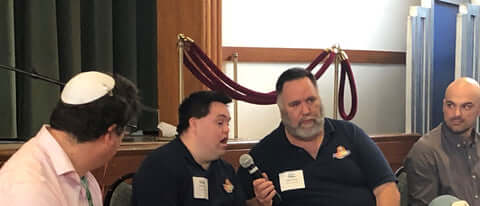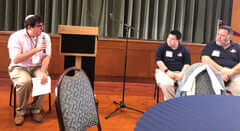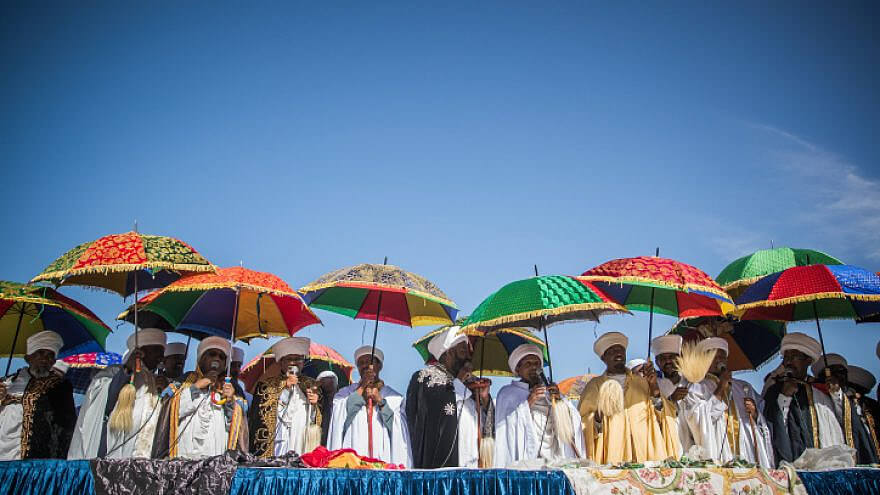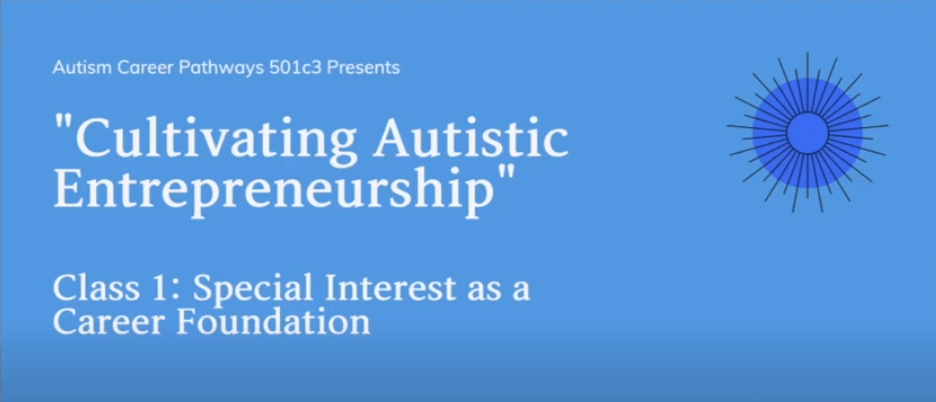John and Mark X. Cronin, co-founders of John’s Crazy Socks, spoke this morning at conference held by the Ramah Camping Movement. The conference focused on ways the nationwide chain of Jewish camps can support their staff. John and Mark spoke at a session focused on Ramah’s Tikvah programs that include young adults with intellectual and developmental disabilities in the camps through vocational training and supported employment.
John said, “I love the way Ramah supports people with differing abilities. They make a difference in so many lives.”

Howard Blas, National Ramah Tikvah Network Director, invited the Cronins to join a panel with Dave Thompson from the Nicholas Center and Spectrum Designs to share their experiences and insights into recruiting, hiring and working with people with differing abilities. The three guest speakers addressed the conference at large and then met separately with Camp leaders to discuss ways to create more jobs for people with differing abilities and to enhance their existing vocational programs.
Dave Thompson offered that hiring people with disabilities comes down to a mindset, a willingness to see the ability of all people to contribute.
Mark X. Cronin echoed that though in saying, “We ask that you not be blinded by a person’s limitations, instead, be awed by their possibilities.”

Mark X. Cronin added, “We loved these conversations. It is clear that Ramah has a deep commitment to inclusion and supporting people with differing abilities. We are glad to join this panel and were impressed by the achievements of the Ramah Tikvah Network.”
At the conclusion of the event, Howard Blas told John and Mark, “Thank you for joining us, sharing your story, and offering useful, practical advice to our attendees. You have been a hit every time I have heard you speak!
About the Ramah Camping Movement and the Ramah Tikvah Network
The mission of the Ramah Camping Movement is to create and sustain excellent summer camps and Israel programs that inspire commitment to Jewish life and develop the next generation of Jewish leaders. Each year, more than 11,700 campers and university-aged staff members attend their ten residential camps, five-day camps, and Israel programs.
Since the first Ramah Tikvah program opened in 1970, the Ramah Camping Movement has continued to be a pioneer in the inclusion of Jewish campers with disabilities. Tikvah programs now operate in all Ramah camps across North America, offering the inspirational Ramah experience to Jewish children, teens, and young adults with a wide range of intellectual, developmental, or learning disabilities.
About John’s Crazy Socks
John’s Crazy Socks was inspired by John Lee Cronin, a young man with Down syndrome, and his love of colorful and fun socks—what he calls his “crazy socks.” He and his father, Mark X. Cronin, started the company as a social enterprise with a mission of Spreading Happiness™. They do this by offering socks people can love that allows an expression of one’s true self. More than half their employees have a differing ability, and their Giving Back program has raised over $475,000 for charity partners like the Special Olympics, the National Down Syndrome Society and the Autism Society of America. Most of all, they are Spreading Happiness™.
For more information about John’s Crazy Socks, visit our webpage, Facebook page, Instagram account or YouTube channel. You can also contact us at 631-760-5625 or via email at service@johnscrazysocks.com.




